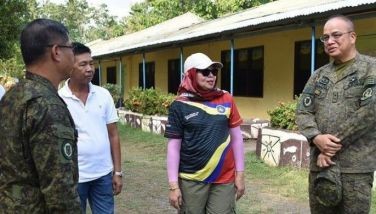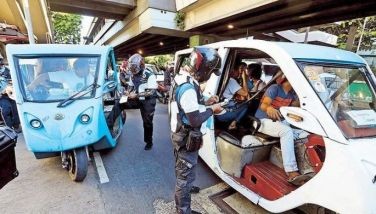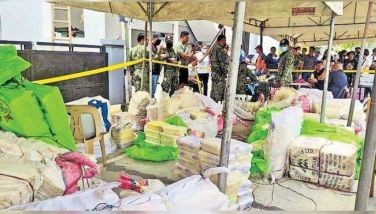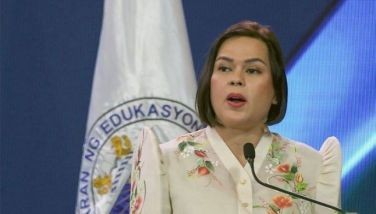Officials look for solutions amid flooding in Maguindanao schools
COTABATO CITY, Philippines - Officials are confronted with a complex engineering challenge as they aim to prevent the recurring inundation of low-lying areas in Maguindanao from disrupting classes in campuses near rivers and swamps that connect to the 220,000-hectare Liguasan Delta.
Lawyer Jamar Kulayan, regional education secretary of the Autonomous Region in Muslim Mindanao (ARMM), said they will notify the central office of the Department of Education (DepEd) of the peculiar situation of children in oft-flooded areas in the province.
He said his office will also recommend to DepEd Secretary Armin Luistro vital measures needed to alleviate the plight of children in areas vulnerable to floods.
"That will include engineering approaches," Kulayan said.
Kulayan said the DepEd-ARMM will need the support of the region’s public works department in addressing the concern.
Classes in dozens of public schools in Maguindanao towns along the Liguasan Delta have perennially been disrupted by floods whenever the marsh, which is the world’s largest in terms of surface area, and its tributary rivers, which straddles through the province, swell and overflow due to heavy rains.
The ARMM’s natural resources secretary, Kahal Kedtag, said he and his subordinate-foresters will help Kulayan study possible solutions to the problem.
“This is something we need to address as a team,†Kedtag said.
Kedtag and his subordinates have been advocating for the massive planting of bamboo seedlings along river banks as a possible natural remedy to the scouring of the alluvial walls of the waterways in Maguindanao as a result of frequent flooding.
Floodwaters from the Liguasan Delta flow through these rivers before funneling down into the western seacoast of Cotabato City.
Kulayan, accompanied by reporters, toured the flooded schools in the first district of Maguindanao on Tuesday to inspect and gather photos and video footage of the inundated campuses.
Teachers in the affected school have continued holding classes on nearby high grounds in protective makeshift tents and under the shades of fruit trees.
Kalzim Kulim, a pupil of the Katidtuan Elementary School in Kabuntalan town, said they have long been accustomed with what is for him "regular flooding" in their village.
“Kahit mahirap ang pagpunta sa paaralan, wala kaming magagawa. Ang mahalaga eh makapasok kami sa aming mga klase, makarating sa paaralan gamit ang aming mga bangka,†he said.
The young Kulim, a son of a lowly marsh fisherman, said education is the key to his dream to become a public school teacher.
Ethnic Maguindanaons of today have nothing much to complain about the frequent floods in low-lying areas in the province, a situation they have been so familiar with, and something their ancestors have lived by complacently, as “people of the flooded plains.â€
The moniker "people of the flooded plains" is the distinct historical and geographical identity of the Maguindanaon natives thriving along the Liguasan Delta, and in riverside enclaves that have been existing even before the dawn of Islam in the 14th century, brought in by Shariff Mohammad Kabunsuan, an Arab-Malay Islamic theologian from Johore, now an island state in Malaysia.
Maguindanao Gov. Esmael Mangudadatu said they have applied for a loan to buy a multi-million modern dredger to remove silt and other soil debris from big rivers criss-crossing the province to hasten their downstream flow into the Moro Gulf in the west of Cotabato City.
"These rivers will no longer overflow if the silt that have made them become so shallow over the decades are taken out and piled along the banks," Mangudadatu said.
Mangudadatu said massive dredging activities in Maguindanao will also generate livelihood opportunities for villagers in riverside farming hubs.
The governor said ethnic Maguindanaon villagers can collect the silt and the fertile “pit soil†from the riverbeds that can be sold for agricultural purposes.
“At a time when we are promoting organic farming, which is now a global trend, we shall also `harvest,' as a result of dredging activities, fertile soil from the riverbeds. This can generate income for our people, generate revenues for the provincial government,†Mangudadatu said.
- Latest
- Trending































